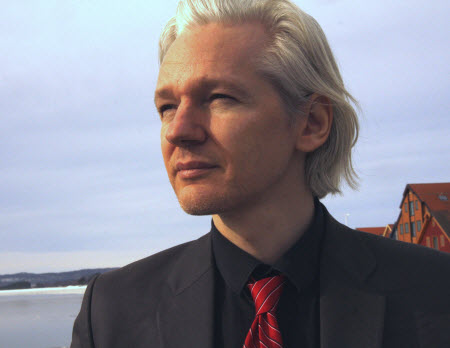WikiLeaks Puts Bounty on Trade Treaty Drafts
The smarter way to stay on top of the multichannel video marketplace. Sign up below.
You are now subscribed
Your newsletter sign-up was successful

WikiLeaks has put a $100,000 bounty on a copy of the Trans-Pacific Partnership (TPP) treaty being negotiated by the U.S. and Pacific Rim countries that includes protections for digital content.
WikiLeaks said the goal of the treaty is, among other things, to "create a new international legal regime that will allow transnational corporations to bypass domestic courts, evade environmental protections, police the Internet on behalf of the content industry..." and more.
"The transparency clock has run out on the TPP," WikiLeaks founder Julian Assange said in a statement. "No more secrecy. No more excuses. Let's open the TPP once and for all."
WikiLeaks has already published several leaked chapters of the treaty draft, but wants more. Those chapters, which included online content protection language, did not sit well with consumer advocates Public Citizen.
“The WikiLeaks text features Hollywood- and recording industry-inspired proposals – think about the SOPA debacle – to limit Internet freedom and access to educational materials, to force Internet providers to act as copyright enforcers and to cut off people’s Internet access,” Burcu Kilic, Public Citizen's legal counsel, said when the chapters were first published.
The Motion Picture Association of America, which represents TV and movie content producers, sees TPP differently.
The TPP would expand trade, including access to creative content, to much of the Asia-Pacific region, MPAA said, including creating what it calls "strong standards for the protection and enforcement of intellectual property rights for the 21st century."
The smarter way to stay on top of the multichannel video marketplace. Sign up below.
"Completion of a meaningful TPP will allow our flourishing industry to continue expanding into some of the world’s largest and most important markets to continue to build on this American success story," an MPAA spokesperson said of the treaty.
Contributing editor John Eggerton has been an editor and/or writer on media regulation, legislation and policy for over four decades, including covering the FCC, FTC, Congress, the major media trade associations, and the federal courts. In addition to Multichannel News and Broadcasting + Cable, his work has appeared in Radio World, TV Technology, TV Fax, This Week in Consumer Electronics, Variety and the Encyclopedia Britannica.

